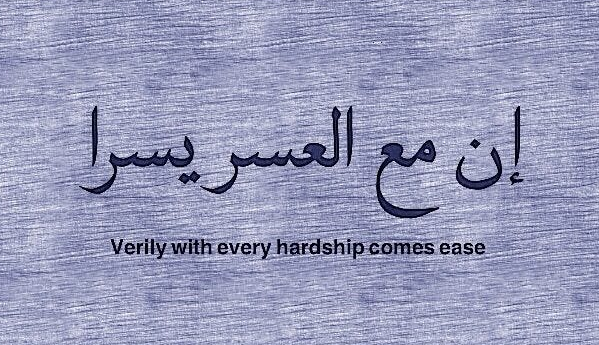Life, in its raw essence is hard —a relentless crucible of trials and tribulations. As aptly said by Nietzsche, ‘To live is to suffer. From financial burdens to shattered hearts, health crises to the quiet weight of existential dread, hardship is woven into the very fabric of our existence. And yet, we live in the ceaseless echoes of our sorrows as said by Dostoevsky, ‘I exist in hundreds of agonies.’
Allah (SWT) says in Surat Al-Balad (90:4); “Verily, We have created man into toil and hardship.”
Life, by its very nature, is a journey woven with hardship. From the first breath to the last, every soul must pass through seasons of struggle, moments of pain, and tests of endurance. This is not a sign of abandonment by the Creator, but rather a mark of purpose: life is meant to challenge us, to refine us, to lift us from ease and complacency into strength and resilience.
The verse reminds us that hardship is not an accident, nor a punishment — it is a part of the design. To live is to strive. Every success is born of sacrifice, every growth through discomfort. Just as gold is purified by fire, the soul is polished through its trials.
In hardship, there is a hidden mercy. Through difficulty, we learn patience. Through pain, we discover empathy. Through loss, we find what truly matters. The one who recognizes this divine reality will not despair when trials come, but will endure with hope, knowing that hardship is the bridge to greatness.
Yet, within this struggle, life also reveals its counterpoints: fleeting joys, hard-earned growth, and the stubborn resilience that pushes us forward. And beyond every hardship, God promises ease.
“Indeed, with hardship, will be ease.” (Surat Al-Inshirah 94:6)
Thus, hardship is not the end — it is the beginning of a deeper journey toward our Lord, and a life more meaningful than comfort alone could ever offer. In the midst of life’s storms, Surah Az-Zumar, verse 53 is one of the most hopeful and healing messages in the Qur’an.
Allah says: “Say, ‘O My servants who have transgressed against themselves [by sinning], do not despair of the mercy of Allah. Indeed, Allah forgives all sins. Indeed, it is He who is the Forgiving, the Merciful.’”
This verse is a beacon for those overwhelmed by guilt, grief, or hopelessness. When struggles and setbacks accumulate, a person may feel shattered—convinced there’s no return to peace or joy. The weight of despair, sadness, and depression can feel completely crushing. Yet Allah (SWT) assures us: no matter how far we’ve strayed, His mercy is always within reach.
Reflecting on this verse can pull a person out of the darkest moments. It encourages trust (tawakkul) in Allah’s (SWT) mercy, patience (Sabr) through trials, and the understanding that our worth is not determined by our mistakes — but by our willingness to return to Allah with humility and hope.
As Haruki Murakami wrote, “And once the storm is over, you won’t remember how you made it through, how you managed to survive. But one thing is certain. When you come out of the storm, you won’t be the same person who walked in.” This transformation is the heart of the journey from pain to purpose. Hardship strips away the superficial, revealing what truly matters—faith, love, resilience, and the unyielding human spirit.
From hardship to ease, the path is neither linear nor easy, but it is sacred. Each trial is a chapter in a larger story, one that leads us closer to our Creator and to the best versions of ourselves.
As Rumi wrote, “The wound is the place where the Light enters you.” Embrace the wound, through it flows the light of healing, hope, and an unshakable purpose that transforms suffering into a testament of faith and resilience.
(The author is MSc (NET) from University of Kashmir)








